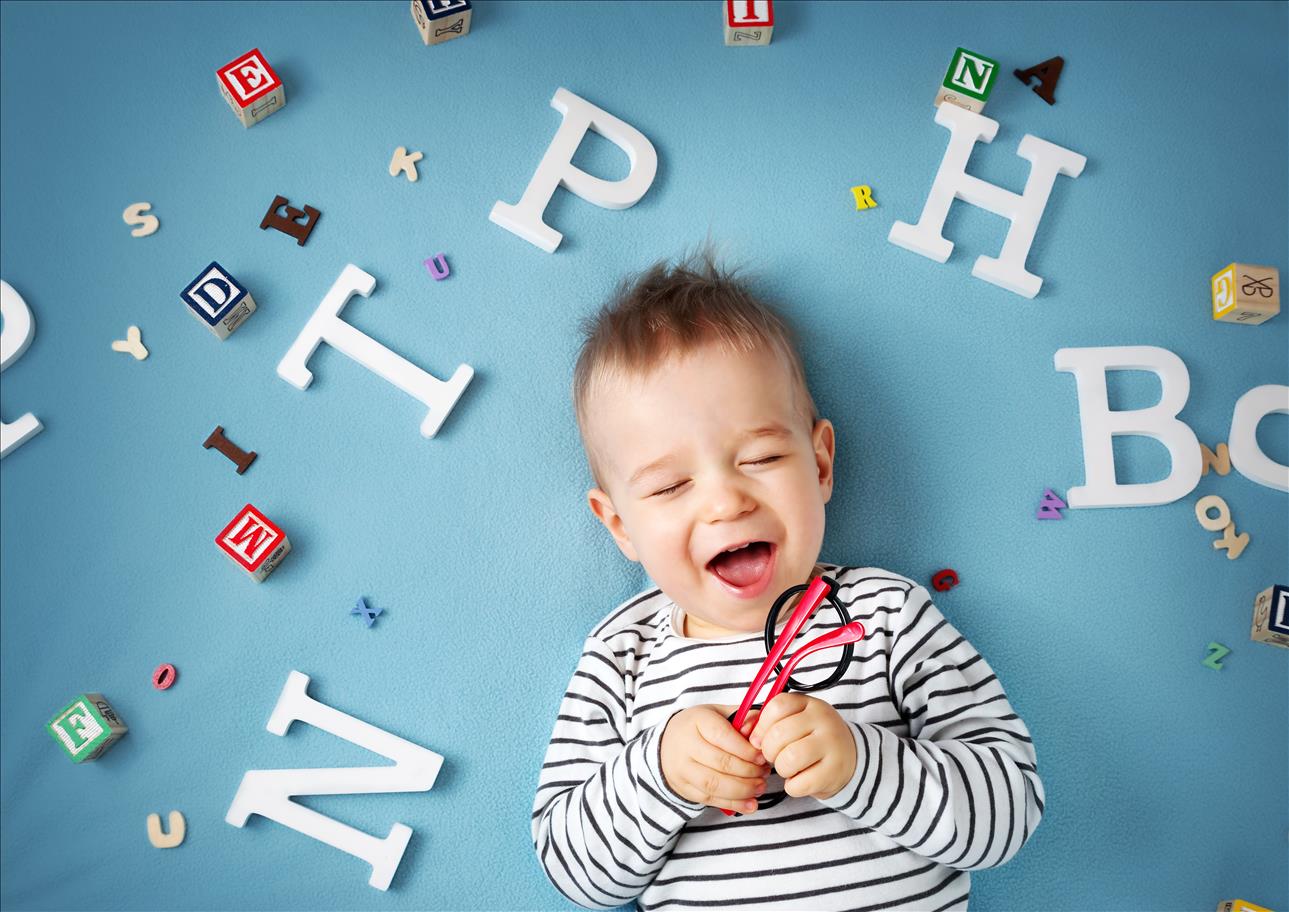The very first skill that your baby learns is that of communication. From its first cry which lets you know that he is hungry, the baby starts communicating his/her needs through a variety of sounds and expressions. Though they cannot speak anything as yet, babies are very observant and very keenly watching and learning. Here we will have a look at how we can encourage Language development skills in infants:
0-6 months:
1. Peek-a-Boo: The simple Peek-a-Boo game is not just an amusing game but your child is also learning interaction, cues on expressions, emotions and turn taking. You can play the game as long as your child enjoys it and anywhere. Through this game the baby is also learning the concept of object permanence i.e. the awareness that even if the object is out of sight, it is still there.
2. Keep Talking: Describe every activity that you are doing to your baby. Eg. When you see that the baby is getting fussy because it’s hungry, speak to him/her that” I know you are feeling hungry. Your milk is coming right up.” Even if the baby does not understand the words yet, he/she will gain comfort from the tone of your voice and feel understood.
3. Imitation: Copying the sounds that your baby makes and talking back to her will encourage her to try communicating with others.
4. Sing Songs: You don’t have to be an expert at singing to make your baby happy. Just make a song on any activity that you are doing and your baby will love the rhythm and tone of your voice.
6 – 12 months
1. Read, Read and Read: Babies this age start showing interest in books albeit by mouthing, touching or looking at them. They are fascinated by bright pictures. Just follow your baby’s lead to make reading a positive experience.
2. Name objects: Keep telling the baby name of objects that the baby is looking at. Take him/her out for shopping and describe what you are buying. Eg. “This is a banana. We’ll have it for lunch today”
3. Name Body parts: You can introduce name of body parts while bathing or just snuggling. It will help create better bonding between the parent and child and also increase her vocabulary.
4. Non-Verbal Cues: While talking to baby it is important to not just focus on words but also non-verbal cues like maintaining eye contact, raising the pitch when a question is asked, letting baby babble and then responding to those.
Toddlers
1. Puppet Play: You can use simple puppets like finger puppets or sock puppets to create an interesting conversation. The toddlers will enjoy immensely and also learn new language skills.
2. Reading together: At this age reading can be more interactive. You can point at objects and ask your child, “What is this called?’ or also ask “Where is the picture of apple?”
3. Use complete sentences: Toddlers are learning how to put words together to convey what they want to say. Using complete sentences with them will help them grasp how language and basic grammar rules apply. So instead of saying “Hungry?” you can ask the child” Are you feeling hungry?”
Interested in homeschooling resources for your child? Proeves has launched a ‘Learning Lab‘ which will have access to a host of unlimited activities to engage your child.

